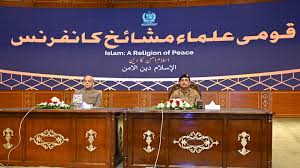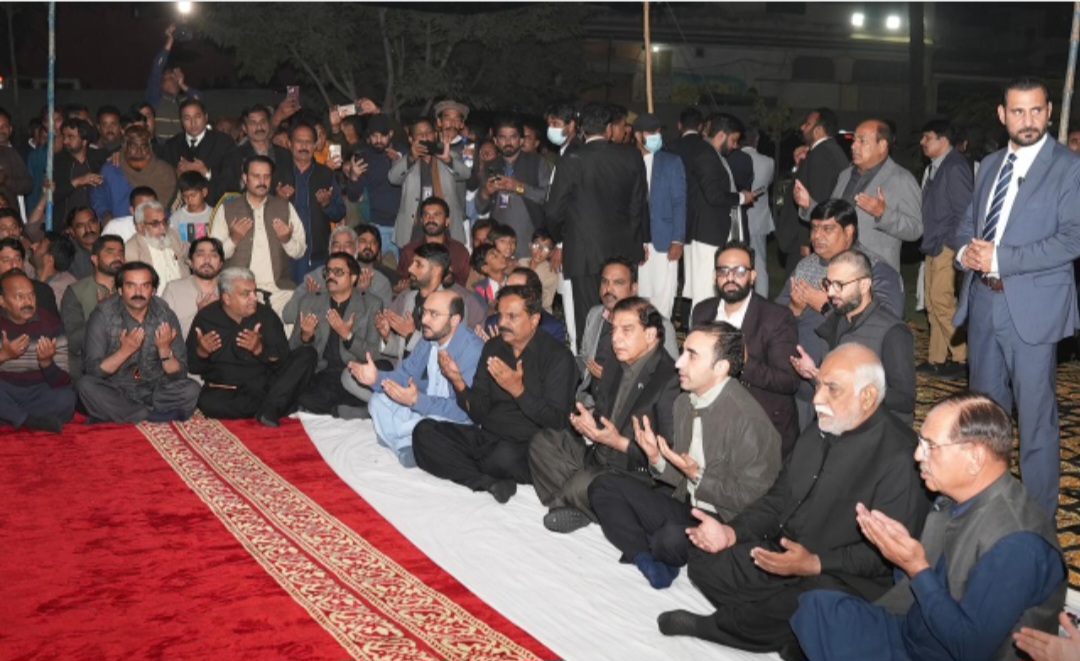Between Deterrence and Diplomacy -By Senator Sehar Kamran
By blending deterrence with diplomacy, Pakistan has not only defended its sovereignty but also asserted its voice globally.

Bilawal Bhutto Zardari spearheaded a multi-party delegation to key global capitals. His articulate interventions at various diplomatic and policy forums calling for accountability on regional stability ensured Pakistan’s narrative of defensive resilience gained global traction, countering India’s attempts to mischaracterise the conflict. Bilawal Bhutto’s focus on India’s suspension of the Indus Waters Treaty was a diplomatic masterstroke. By framing the move as a dangerous precedent for transboundary resource conflicts, he sparked global discourse on water security in climate-vulnerable South Asia. His warning that denying Pakistan its rightful water share could escalate tensions resonated in diplomatic corridors, reinforcing Pakistan’s commitment to international norms and positioning it as a responsible actor. This strategic communication built directly on the military victory, ensuring Pakistan’s battlefield success translated into lasting geopolitical leverage.*_
We live in an era of geopolitical upheaval, marked by ongoing conflicts in Ukraine, Gaza, Syria, and Iran, intensifying U.S.–China rivalry, and growing economic uncertainty. For mid-sized states like Pakistan, securing national interests is a formidable challenge amid limited economic leverage, modest global influence, and persistent internal pressures.
Yet, against this backdrop, Pakistan has experienced what can be described as a significant strategic and defining moment. In the wake of the Indo–Pak conflict of May 2025, triggered by Indian military aggression, Pakistan not only defended its sovereignty effectively but translated its battlefield success into measurable diplomatic traction. This dual success is now reshaping South Asia’s evolving security architecture.
*Pakistan’s success stemmed from a synergy of military prowess, credible deterrence, timely political decisions and effective strategic communication. Under Field Marshal Syed Asim Munir Ahmed Shah, the Pakistan Armed Forces displayed operational excellence, institutional cohesion and professionalism. The Pakistan Air Force played a critical role in neutralising Indian aggression—downing multiple aircraft—and asserting dominance in air, cyber and electronic warfare domains. This military victory disrupted India’s strategic calculus, exposing vulnerabilities in its defence posture.*
*India’s setbacks were compounded by domestic and international fallout. Indian Prime Minister Narendra Modi’s government faced sharp domestic criticism, including from opposition leaders and retired military personnel, who accused his government of concealing the loss of five fighter jets—three Rafales, a Su-30MKI, and a MiG-29. U.S. President Donald Trump’s public endorsement of these claims further eroded India’s credibility, amplifying the pressure on Delhi to account for its missteps.*
*Post-conflict, Pakistan launched a carefully orchestrated diplomatic campaign to reinforce its narrative and pre-empt international mischaracterisation. The operation, Bunyan-um-Marsoos, named after a Quranic verse symbolising an “Impenetrable Wall”, was complemented by sustained diplomatic outreach. Former Foreign Minister Bilawal Bhutto Zardari played a visible role to capitalise on this momentum with a robust diplomatic offensive. Bilawal Bhutto Zardari spearheaded a multi-party delegation to key global capitals. His articulate interventions at various diplomatic and policy forums calling for accountability on regional stability ensured Pakistan’s narrative of defensive resilience gained global traction, countering India’s attempts to mischaracterise the conflict. Bilawal Bhutto’s focus on India’s suspension of the Indus Waters Treaty was a diplomatic masterstroke. By framing the move as a dangerous precedent for transboundary resource conflicts, he sparked global discourse on water security in climate-vulnerable South Asia. His warning that denying Pakistan its rightful water share could escalate tensions resonated in diplomatic corridors, reinforcing Pakistan’s commitment to international norms and positioning it as a responsible actor. This strategic communication built directly on the military victory, ensuring Pakistan’s battlefield success translated into lasting geopolitical leverage.*
*Bilawal Bhutto’s diplomatic agility is rooted in his prior tenure as Foreign Minister, during which he recalibrated Pakistan’s foreign policy. He fostered balanced engagement with Western and Eastern powers, revitalised ties with the Islamic world, and deepened dialogue with Europe and the United States. His advocacy for climate justice after the 2022 floods secured global aid and attention, earning praise from UN Secretary-General António Guterres. This “institutional strategic sync” between Pakistan’s foreign office and security establishment ensured seamless crisis messaging, enabling Bilawal Bhutto Zardari to amplify the military’s achievements on the global stage.*
Pakistan’s narrative dominance was further bolstered by disciplined messaging that capitalised on India’s diplomatic missteps. This also underscores Pakistan’s ability to balance major power relations in a polarised international system. Despite the zero-sum pressures of US–China bloc politics, Pakistan has managed to retain strategic relevance to both powers. Its geographic location, counterterrorism capabilities, and access to critical trade routes have kept it in diplomatic play.
*Domestically, the military victory has galvanised national sentiment, offering a rare moment of unity for a nation strained by political polarisation, terrorism, and economic challenges. It has also underscored the need for stronger civil–military coordination in managing strategic crises, a lesson Pakistan must internalise to sustain its gains.*
However, caution is warranted. The structural drivers of South Asian conflict—Kashmir, water security, protracted proxy terrorism, and the Indian mindset of pursuing false-flag operations for petty political interests—remain unresolved. Moreover, Pakistan’s economic vulnerabilities, governance gaps, and reliance on external financial support continue to constrain its long-term strategic autonomy. Sustaining this moment requires pragmatic regional diplomacy, institutional resilience, and policy continuity to address these underlying issues.
Pakistan’s success demonstrates that mid-sized powers, when acting decisively, can shape outcomes in asymmetric conflicts. By blending deterrence with diplomacy, Pakistan has not only defended its sovereignty but also asserted its voice globally. Whether it can transform this moment into a sustained strategic posture depends on its ability to foster national unity, pursue economic stability, and engage regionally with pragmatism. For now, Pakistan has shown it can shape the regional agenda—a significant achievement in a world of shifting alliances and contested narratives.
Senator Sehar Kamran
_The writer is a Senior member of Pakistan Peoples Party and has served as an elected Member of the Upper House of Parliament of Islamic Republic of Pakistan. She remained member of Senate committees on Defence, Foreign Affairs, Human Rights and the convener of the Pakistan-Saudi Parliamentary Friendship Group at the Senate of Pakistan. Her X is @SeharKamran_
https://www.nation.com.pk/03-Aug-2025/between-deterrence-and-diplomacy



No comments yet.